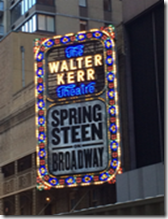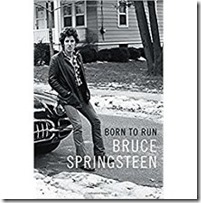Always the beautiful answer/Who asks a more beautiful question.[i]
― e. e. cummings
Inquiry is a vastly under-appreciated skill, yet foundational for learning, problem solving, and relationship building. Good questions change lives and the course of history, and the resolution of big thorny problems requires them. Few are taught in their professional training to ask good questions. Journalists may be the rare exception.[ii]
Inquiry seeks to discover or learn what others think, know, want, or feel.
How can you foster better exchanges and relationships with important people in your life using inquiry? Fine-tune your inquiry skills to strengthen your capacity to lead?
The basic inquiry skill is knowing how to ask good questions. Good questions typically begin with words like how, why, or what. They go beyond requests for a yes or a no response. Instead they encourage people to think and talk: to provide information, describe and unpack their thinking, explore ideas, share their perspective, or consider new possibilities.
Good inquiry is necessary for testing ideas, seeking feedback, learning from others, and accurate situational diagnoses.
Tightly connected to good inquiry is active and attentive listening. The benefits of inquiry are lost if others see it as manipulative technique and not a route to your deeper understanding.
Edgar Schein introduces the concept of “humble inquiry,”[iii] defined as the fine art of asking others questions based on your curiosity and sincere interest in them. The purpose is to draw others out and into a closer and more trusting relationship. Schein sees humble inquiry as an investment of your time and attention to build foundations for effective teamwork – at work or home.
Inquiry is a habit of the mind that does not come easy to many, especially in a “tell” world that values experts who “already know.” Business organizations and “let’s get on with it” cultures often view questions as “inefficient” and the antithesis of action, task completion, and forward momentum, according to Clayton Christensen,[iv] an advocate of good questions as a way to foster disruptive innovation.
The culture of the charismatic extrovert – someone who speaks out and speaks up with clarity and drive – still dominates everyday beliefs about effective leadership; and more than a century after Dale Carnegie launched his first public speaking course at a New York City YMCA, his best-selling book How to Win Friends and Influence People is still a staple on airport bookshelves and business best-seller lists[v].
So how can you enhance your inquiry skills?
There are two places to start: (1) increase your use of questions, and (2) ask better questions. Where do you stand on each?
In our book, Engagement: Transforming Difficult Relationships at Work, Lee Bolman and I provide a tutorial on inquiry. You may want to try these recommendations from it:
Compare your advocacy and inquiry counts: Over the course of the next week, be mindful in your conversations with others about the balance between your advocacy (telling people something) and your inquiry (asking them a real question). Take time after a number of selected conversations to think about: How many questions did you ask the other vs. how many statements did you make? How often were questions real requests for information vs. rhetorical devices and advocacy in disguise? Tracking your ratio of advocacy and inquiry allows you to work on changing the balance.
Descriptive questions: Take as a goal for a day or a time period to avoid asking questions that evoke a yes or no answer. Substitute instead questions that begin with how, why, or what. How easy is that for you? How does that change the tenor of your conversations? Why do you think that is? What have you learned about others as a result?
Successful leadership is steeped in the search for information and learning – about others, the situation, and the best steps forward. How can improving your inquiry improve the impact of your efforts?
[i] e. e. cummings. Introduction to New Poems. Accessed December 12, 2015 at http://poems.writers-network.com/pdf/article-662.pdf
[ii] Warren Berger (2014). A More Beautiful Question: The Power of Inquiry to Spark Breakthrough Ideas. New York: Bloomsbury.
[iii] Edgar Schein (2013). Humble Inquiry: The Gentle Art of Asking Instead of Telling. San Francisco: Berrett-Koehler.
[iv] Clayton M. Christensen (2011). The Innovator’s Dilemma: The Revolutionary Book That Will Change the Way You Do Business. New York: Harper Business.
[v] Susan Cain (2013). Quiet: The Power of Introverts in a World that Can’t Stop Talking. New York: Broadway Books.



